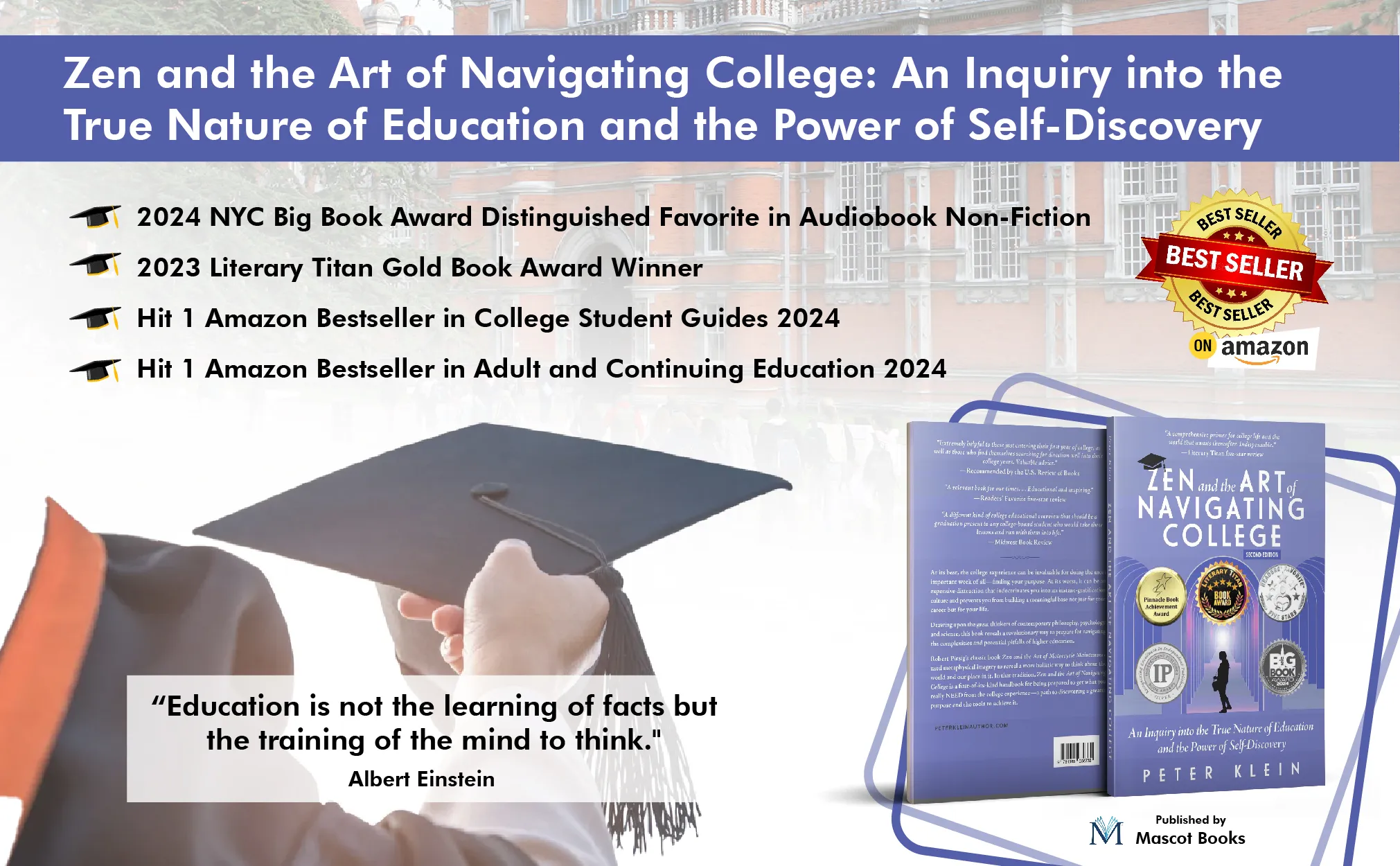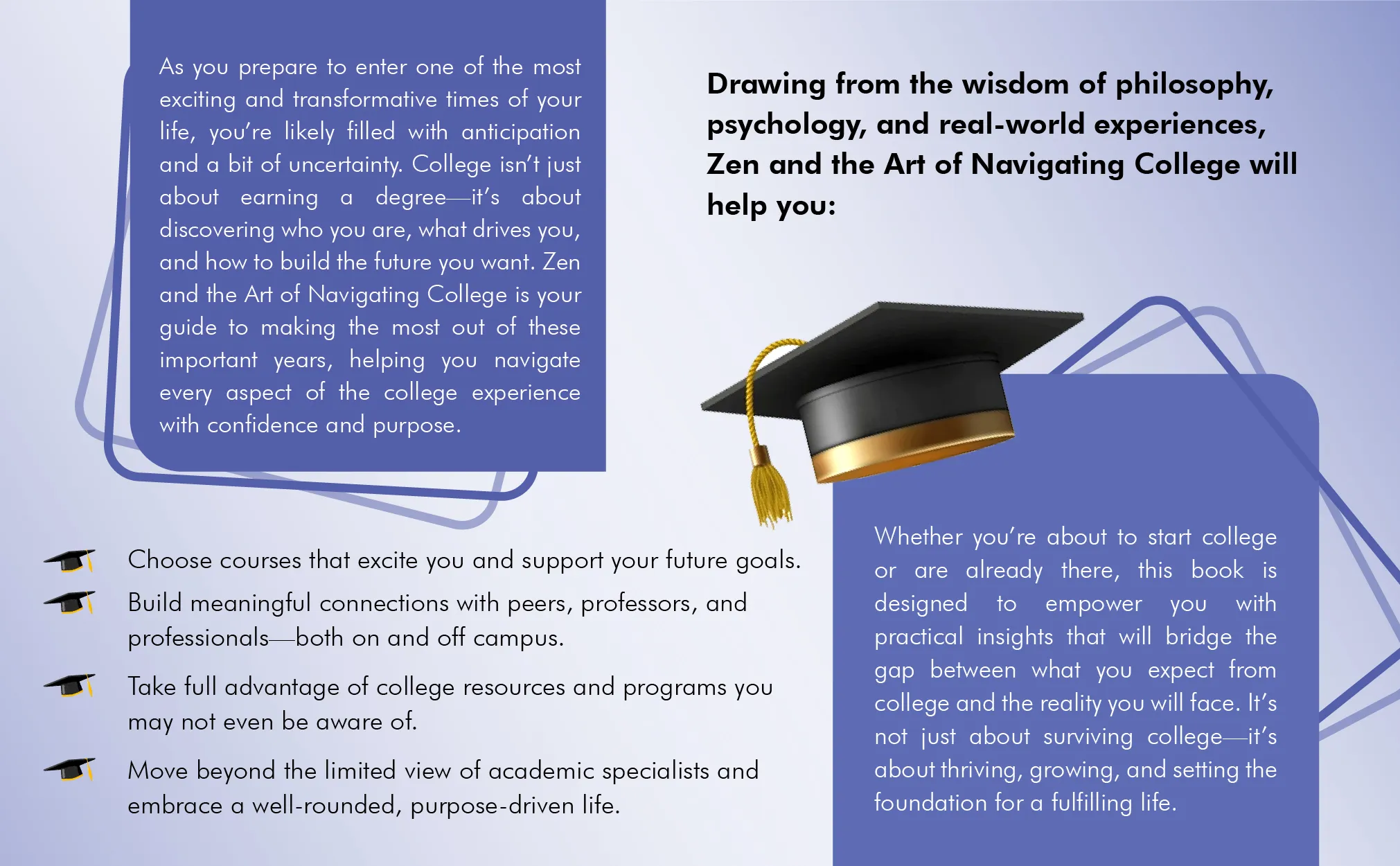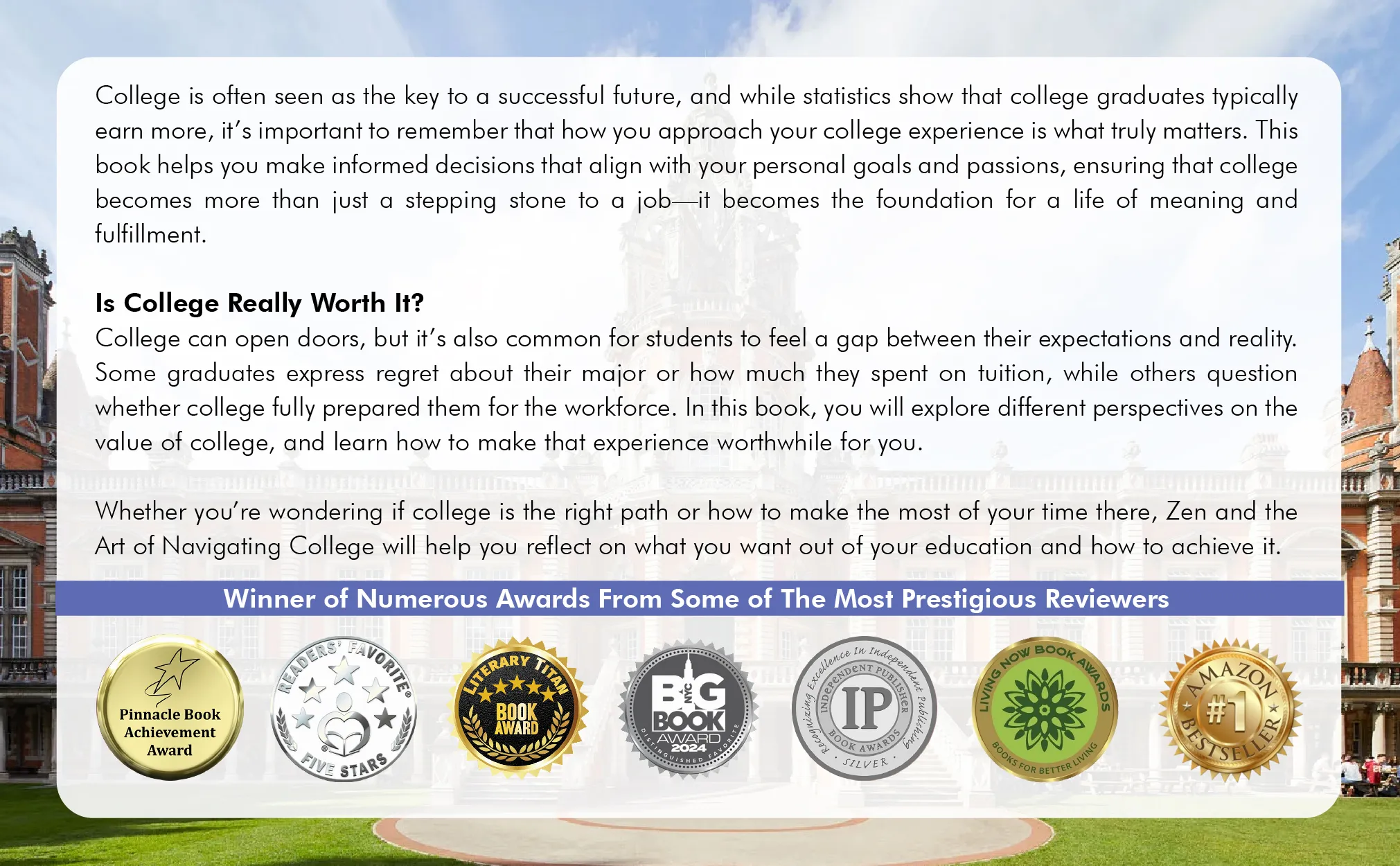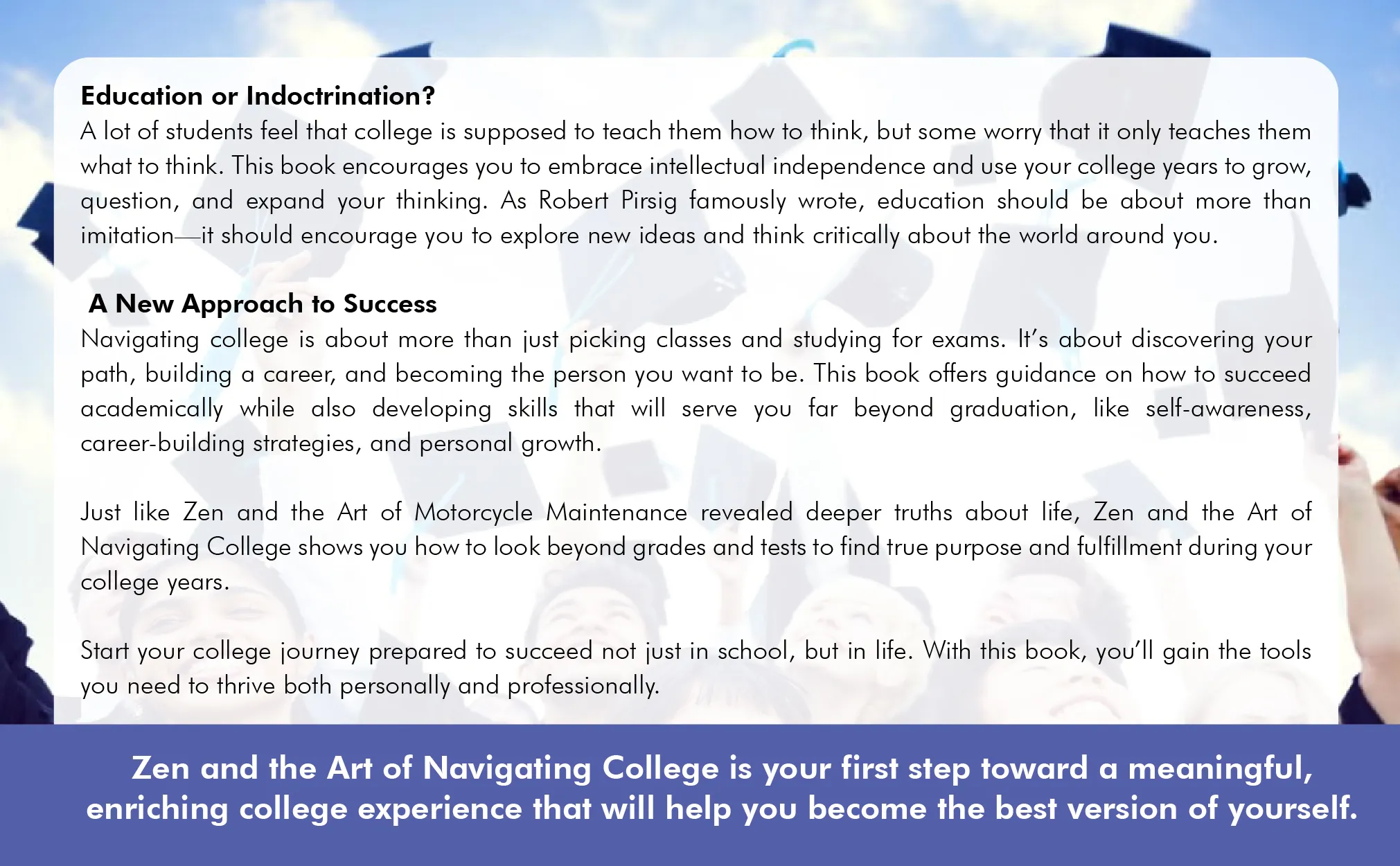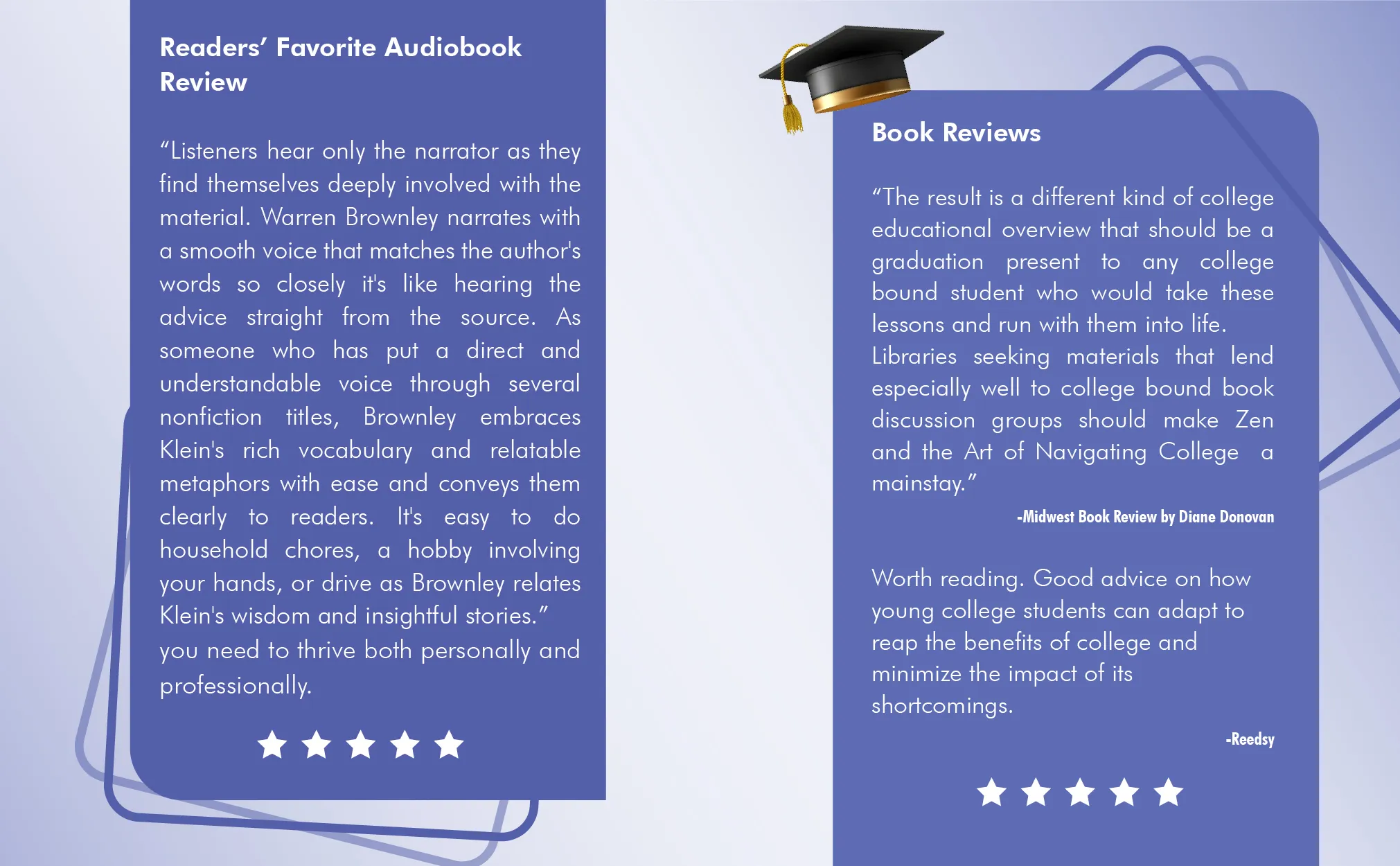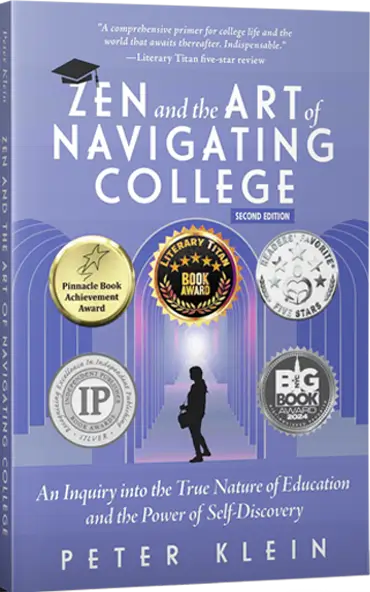Writings
Zen and the Art of Navigating College
This is not a self-help book; it much more a reflection of insights and perspectives that can empower the student reader to get the most out of their college experience.
Every year, approximately 2-3 million students enter college full of excitement and apprehension, with a mutually shared expectation that college offers a gateway to success and happiness. But there is a gap between a student’s expectations and what academia actually delivers. The disparity is compounded by differences in perspective. It is a well-known fact that about 75% of college graduates end up in careers that have nothing to do with their major.
The typical college student’s concerns center on the mundane, including logistics, housing, class schedules, tuition, and the anticipation of meeting fellow students, parties, and gaining acceptance to a fraternity. They fail to appreciate the planning and strategic aspects involved in extracting the necessary education that can compensate for a student’s lack of confidence, perspective and preparedness.
Many college students passively go through the curriculum, waiting for inspiration or some signal to give them direction. This doesn’t work, and if you passively submit yourself to the college curriculum, it won’t and can’t deliver on your expectations.
Rather college should be viewed as an opportunity for self-exploration to advance personal understanding and discovery of aptitude and career passion. It can offer a student an opportunity to develop a clearer vision and better understanding of oneself and personal attributes, and thereby help to further eliminate the fog of post teenage development and allow the student to begin the transition into adulthood.
Case for my college book:
I use Robert Frost’s poem, “The Road Not Taken,” as a metaphor for the consequential decision we must make as young adults, in selecting a college. Effectively, students are put in the untenable position of having to make one of the most consequential decisions of their lives with no real experience and limited perspective. In fact, college-bound students usually turn this consequential decision into a Hobson’s choice. Either out of ignorance or caution, students tend to pare down their options significantly, often by default or by the presence of bias and inertia. When we are young, we are fearless often out of ignorance, while our deliberating skills are poorly defined. We have this tendency to want to simplify our choices because in our youth we don’t fully appreciate that in making a decision, we are giving something up!
Alternatively, most college graduates experience the educational version of buyers’ remorse—the disappointment caused by the gap between expectations and reality. We’ve all been conditioned to think that a college education is the gateway to success and happiness or at the very least, it offers the promise to a pathway to positive outcomes in life.
But there is a gap between a student’s expectations and what colleges actually offer. The disparity is compounded by differences in perspective. The student thinks that college is not only going to assist them in developing a profession but also provide education, insights, and information on navigating life.
What most students discover (67 percent of Americans believe) is that colleges and universities put their own institutional interests first, compared to those who believe they put students first (some 9 percent), while 60% of graduating students end up working in jobs and careers unrelated to their major.
Nature doesn’t equally distribute talent and intelligence. We are all different, endowed with varying degrees of talent, skills and aspiration and we, like nature, aren’t good at meeting deadlines when it comes to personal development.
My book alerts the reader to the consequences of decisions they make and provides a greater appreciation for the nuances of life, which are often unpredictable, asymmetrical, and don’t conform to the simplistic educational hierarchy which is defined simply by attendance, imparting knowledge, testing comprehension, and issuing a certificate in the form of a diploma.
A+ Content
